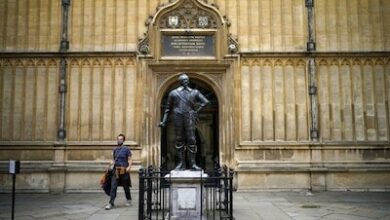Japan’s ruling party leadership race has revived debate on raising the country’s tax on income from investments, a policy once shelved by the outgoing prime minister, as the world’s No. 4 economy seeks to raise revenue to finance its massive budget.
HOW ARE CAPITAL GAINS AND INVESTMENT INCOME TAXED NOW?
The tax on income from investments – imposed on capital gains on stock and property, dividends and interest payment on savings and Japanese government bonds – is uniformly set at 20%, below progressive tax rates on salaries of up to 45% in an effort to encourage investment.
The flat-rate tax system helps lower the overall burden for high-income earners, who tend to earn more through investments.
The issue is commonly called the “100-million-yen wall” problem as tax burdens relative to income drop for earners of more than 100 million yen ($698,080).
WHAT WAS OUTGOING PRIME MINISTER’S POLICY?
Raising the investment tax rate was one of the key policy pledges of Prime Minister Fumio Kishida when he took office in 2021, as he sought to rectify wealth disparities in his “new capitalism” drive.
But Kishida soon shelved the plan as he faced criticism from investors, who feared a potential shift from market-friendly economic policies under former Prime Minister Shinzo Abe and blamed Kishida for the falling stock market at the time.
Kishida’s “new capitalism” agenda later shifted its focus to turning dormant household savings into investments, partly to hedge against rising inflation, making permanent a programme that offers tax breaks for households’ stock investments.
Kishida is stepping down this month, ending a three-year term marred by political scandals. The ruling Liberal Democratic Party (LDP) is set to elect a new leader on Sept. 27 and by extension the country’s next prime minister.
WHO IS TALKING ABOUT IT NOW?
Shigeru Ishiba, the former defence minister running in the leadership race, told a broadcaster that he would beef up the taxation on investment income if he became the next prime minister.
The comments prompted other candidates to express their own views.
Digital Minister Taro Kono, former environment minister Shinjiro Koizumi, and former economic security minister Takayuki Kobayashi expressed opposition, saying the policy would go against the government’s efforts to encourage a shift from savings into investments.
Ishiba later clarified that higher tax levies should be applied only to the rich.
About half of 2,000 trillion yen ($14 trillion) in household financial assets are sitting in cash or bank deposits, which the government is trying to change through policy measures including the NISA tax-free stock investment programme for individuals.
Higher investment tax levies, if officially proposed, would need to be deliberated first at the ruling party’s tax panel toward year-end, where such a plan is likely to meet some opposition. Komeito, the junior coalition partner of the LDP, has also expressed reservations.





